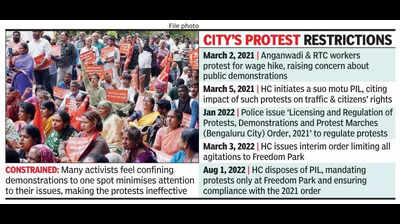Anganwadi worker posts not civil jobs, no reservation mandate: Karnataka high court | Bengaluru News

Bengaluru: The Karnataka high court has upheld the state govt’s position that anganwadi worker posts are honorary in nature and are not bound by the reservation roster applicable to civil service positions. The court passed this judgment while dismissing a petition filed by Vijaylaxmi, a Scheduled Tribe (ST) applicant from Indi taluk in Vijayapura district.The petitioner had applied for the anganwadi worker post at Agarakhed-5 centre in Indi taluk, and challenged the absence of ST reservation in the recruitment notification dated Oct 9, 2024. She argued the state’s current policy denied equitable opportunity to marginalised groups and was inconsistent with reservation norms followed in civil services.Vijaylaxmi sought to nullify the notification and demanded a review of the reservation policy for anganwadi workers, pointing out that very few ST candidates from her region had been appointed in previous rounds. Her contention was that denying community-specific quotas in village-level childcare centres violates constitutional principles of social justice.The state defended its policy, stating anganwadi workers are not appointed as govt employees, but as honorary workers tasked with providing basic nutrition and early education to children at the village level. Since they are expected to serve the entire local community, including all castes and religions, their appointment does not follow the civil service reservation roster.Further, the state govt argued the posts are non-permanent and community-integrated, requiring individuals who can garner trust across social groups rather than being selected through caste-based quotas.Justice MI Arun observed that anganwadi workers do not hold a civil post and hence, cannot expect recruitment processes akin to govt services. The court clarified that the petitioner was not disqualified from applying and could still be selected on merit under the general category.Dismissing the petition, the court stated anganwadi appointments, being honorary, follow a different set of rules and priorities. It concluded that while social inclusion is important, the nature of such posts justifies an approach distinct from that of formal govt jobs.






